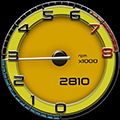I have very little first hand experience with the corvette clutch / flywheel setup. However using a dual disk clutch to support my mild ls3 (550hp/500ft lbs) driving the mendiola. I was wondering if folks had an opinion on using an aluminum flywheel. It seems to make logical sense to me as the car is lighter you don't need that giant 30 lb flywheel to store up energy to allow smooth street driving starts from stopped. It also makes sense that the car will rev up more quickly with the lighter flywheel.
What are the downsides of the aluminum flywheel? Trickier to start from stopped?
Thanks
John
- Home
- Latest Posts!
- Forums
- Blogs
- Vendors
- Forms
-
Links

- Welcomes and Introductions
- Roadster
- Type 65 Coupe
- 33 Hot Rod
- GTM Supercar
- 818
- Challenge Series
- 289 USRCC
- Coyote R&D
- Ask a Factory Five Tech
- Tech Updates
- General Discussions
- Off Topic Discussions
- Eastern Region
- Central Region
- Mountain Region
- Pacific Region
- Canadian Discussions
- Want to buy
- For Sale
- Pay it forward
-
Gallery

- Wiki-Build-Tech



 Thanks:
Thanks:  Likes:
Likes: 


 Reply With Quote
Reply With Quote




